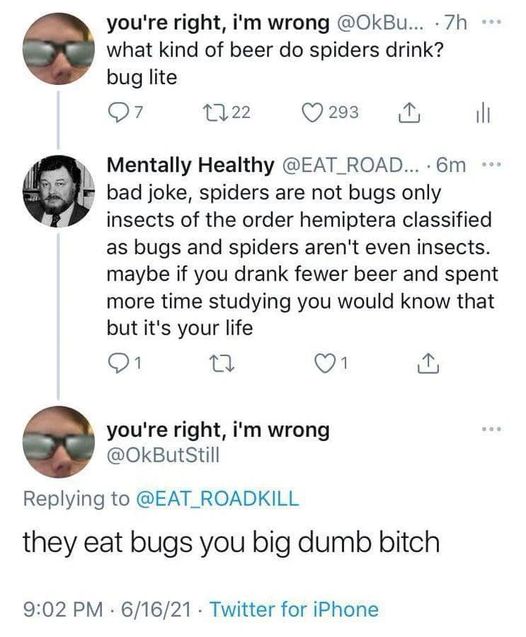this post was submitted on 09 May 2024
1159 points (98.7% liked)
Science Memes
13143 readers
371 users here now
Welcome to c/science_memes @ Mander.xyz!
A place for majestic STEMLORD peacocking, as well as memes about the realities of working in a lab.

Rules
- Don't throw mud. Behave like an intellectual and remember the human.
- Keep it rooted (on topic).
- No spam.
- Infographics welcome, get schooled.
This is a science community. We use the Dawkins definition of meme.
Research Committee
Other Mander Communities
Science and Research
Biology and Life Sciences
- [email protected]
- [email protected]
- [email protected]
- [email protected]
- [email protected]
- [email protected]
- [email protected]
- [email protected]
- [email protected]
- [email protected]
- [email protected]
- [email protected]
- [email protected]
- [email protected]
- [email protected]
- [email protected]
- [email protected]
- [email protected]
- [email protected]
- [email protected]
- [email protected]
- [email protected]
- [email protected]
- [email protected]
- !reptiles and [email protected]
Physical Sciences
- [email protected]
- [email protected]
- [email protected]
- [email protected]
- [email protected]
- [email protected]
- [email protected]
- [email protected]
- [email protected]
Humanities and Social Sciences
Practical and Applied Sciences
- !exercise-and [email protected]
- [email protected]
- !self [email protected]
- [email protected]
- [email protected]
- [email protected]
Memes
Miscellaneous
founded 2 years ago
MODERATORS
you are viewing a single comment's thread
view the rest of the comments
view the rest of the comments

I'm sorry but you're simply incorrect.
Bug is a technical term. Only insects of order Hemiptera, categorized by the ability to fly and the presence of piercing, sucking mouth parts, are considered true bugs.
Lobsters are certainly not considered bugs.
I'm sorry but you're simply incorrect. Bug can be a technical term, but that doesn't also preclude it from also being a non-technical term, because words often have more than one meaning. See also: theory.
Merriam-Webster, definition 1:
"a: any of an order (Hemiptera and especially its suborder Heteroptera) of insects (such as an assassin bug or chinch bug) that have sucking mouthparts, forewings thickened at the base, and incomplete metamorphosis and are often economic pests"
This is the primary and most correct definition of bug.
Yes, people use it wrong. That doesn't change the definition of the word.
Actually it does, that's how language works.
Colloquial language for the salt of the earth
If enough people use it wrong, it becomes right.
Now you get to learn the difference between descriptive and prescriptive definitions.
The scientific taxonomic system was made, in part, because traditional colloquial terms are a mess. For example, "daddy longlegs" refers to a type of spider in my area, but there are two other animals and three plants that it could refer to depending on where you grew up. Taxonomists saw that there are ten different standards, decided to make a new one to replace them all, and for once, it actually worked out for the most part.
"Bug" is one of those old terms. It might have been mapped post hoc on top of the modern taxonomic system, but it didn't start that way, and isn't always used that way. I wouldn't expect an entomologist to use the term at all in formal contexts.
Crawdads are still mudbugs though.
But commonly it's a catch all for any creepy crawly, including arachnid. The classification is even called True Bug, not just Bug